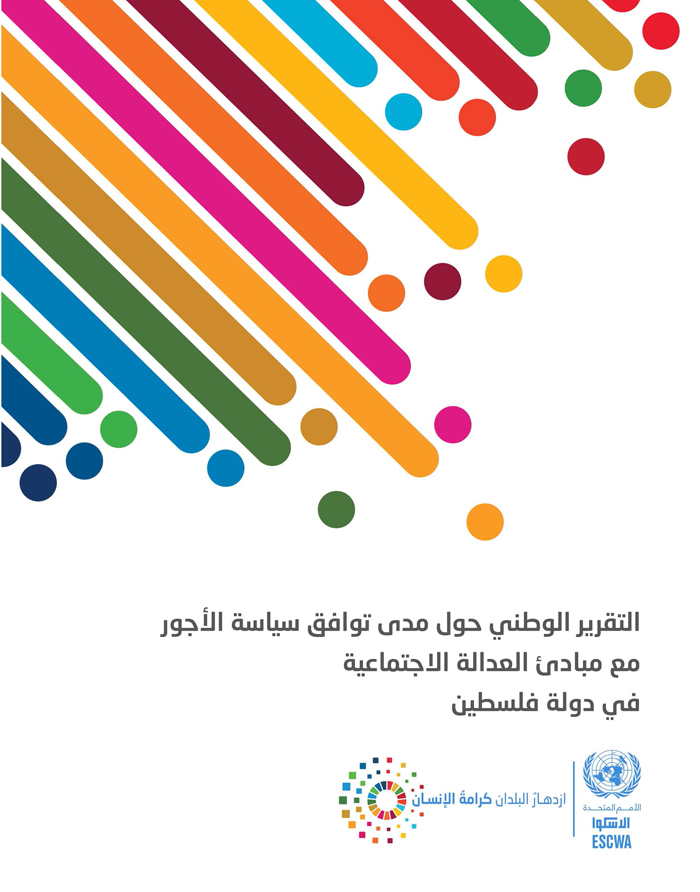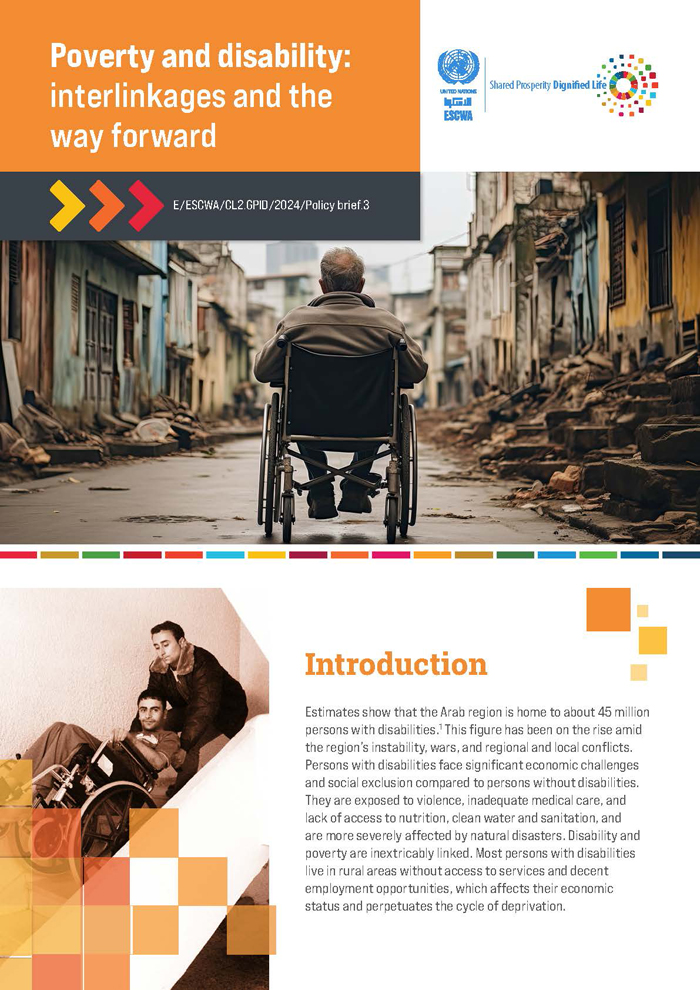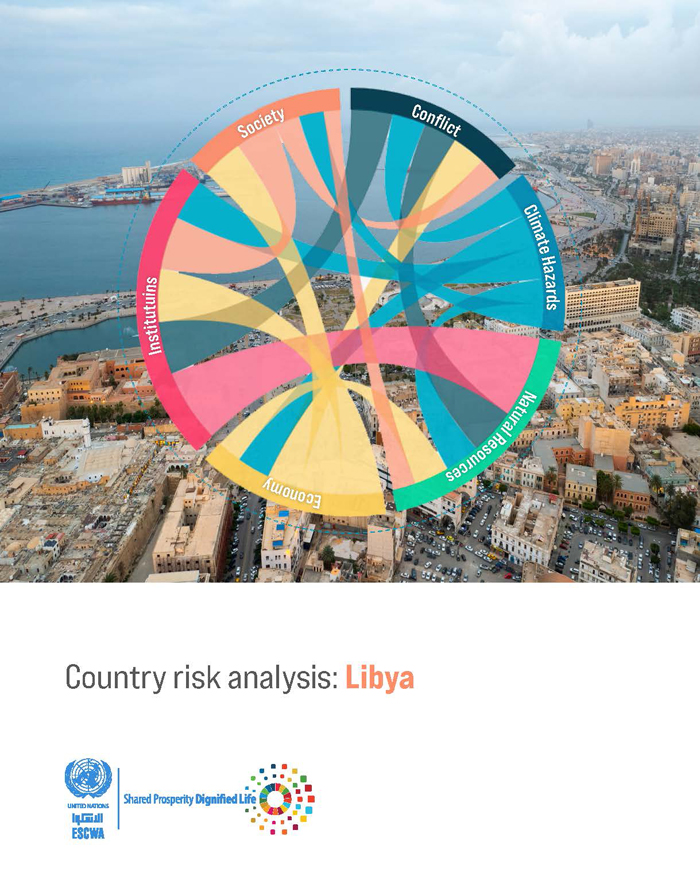
ESCWA Publication: E/ESCWA/CL2.GPID/2022/TP.25
Country: State of Palestine
Publication Type: Reports & studies
Cluster: Gender Justice, Population and Inclusive Development
Focus Area: 2030 Agenda, Governance & enabling environment
Initiatives: Promoting social justice
SDGs: Agenda 2030, Goal 10: Reduced Inequalities
Keywords: Social justice, Wage policy, State of palestine, Economic growth, Social integration, Social protection, Technical cooperation, Recommendations, Human rights, Workforce
National report on the compatibility of wage policy with the principles of social justice in the State of Palestine
November 2022
The report measures the degree to which national wage policy in the State of Palestine is compatible with the principle of social justice, identifies gaps and strengths, and measures its linkage with efforts towards social justice. The report also includes a summary of the main areas of intervention to bridge these gaps and correct the processes for formulating, implementing and following up on wage policy in the State of Palestine in general, and reviews the most important recommendations in this regard.
Based on the results of the assessment, existing strengths within wage policy should be consolidated, gaps addressed and mechanisms and resources developed to overcome them in a systematic and coordinated manner. This requires the development of a fair wage and labour protection policy, taking into account factors specific to the Palestinian context. Future actions could include: raising awareness about social justice, building institutional capacities on how to integrate them into wage policies and coordinating these efforts among different stakeholders; studying, reviewing and revising the regulatory and legal framework for businesses to reduce existing barriers and foster the transition to a structured economy; designing an enabling business environment that encourages the growth of enterprises of a productive, regulated and sustainable nature; developing the capacity of State agencies to conduct inspections to ensure the implementation of the law in place; and setting the minimum wage within an integrated social policy aimed at creating new job opportunities, especially for vulnerable groups, enforcing decent work standards, promoting equality, extending comprehensive social protection coverage (including social security) to the needs of insured persons and developing social incentives to promote health and safety in the workplace, strengthening organization, representation and social dialogue on wage policy and ensuring the continued participation of all stakeholders in these coordination efforts.
Related content
2030 Agenda
, Governance & enabling environment
,
The report measures the degree to which national wage policy in the State of Palestine is compatible with the principle of social justice, identifies gaps and strengths, and measures its linkage with efforts towards social justice. The report also includes a summary of the main areas of intervention to bridge these gaps and correct the processes for formulating, implementing and following up on wage policy in the State of Palestine in general, and reviews the most important recommendations in this regard.
Based on the results of the assessment, existing strengths within wage policy should be consolidated, gaps addressed and mechanisms and resources developed to overcome them in a systematic and coordinated manner. This requires the development of a fair wage and labour protection policy, taking into account factors specific to the Palestinian context. Future actions could include: raising awareness about social justice, building institutional capacities on how to integrate them into wage policies and coordinating these efforts among different stakeholders; studying, reviewing and revising the regulatory and legal framework for businesses to reduce existing barriers and foster the transition to a structured economy; designing an enabling business environment that encourages the growth of enterprises of a productive, regulated and sustainable nature; developing the capacity of State agencies to conduct inspections to ensure the implementation of the law in place; and setting the minimum wage within an integrated social policy aimed at creating new job opportunities, especially for vulnerable groups, enforcing decent work standards, promoting equality, extending comprehensive social protection coverage (including social security) to the needs of insured persons and developing social incentives to promote health and safety in the workplace, strengthening organization, representation and social dialogue on wage policy and ensuring the continued participation of all stakeholders in these coordination efforts.



